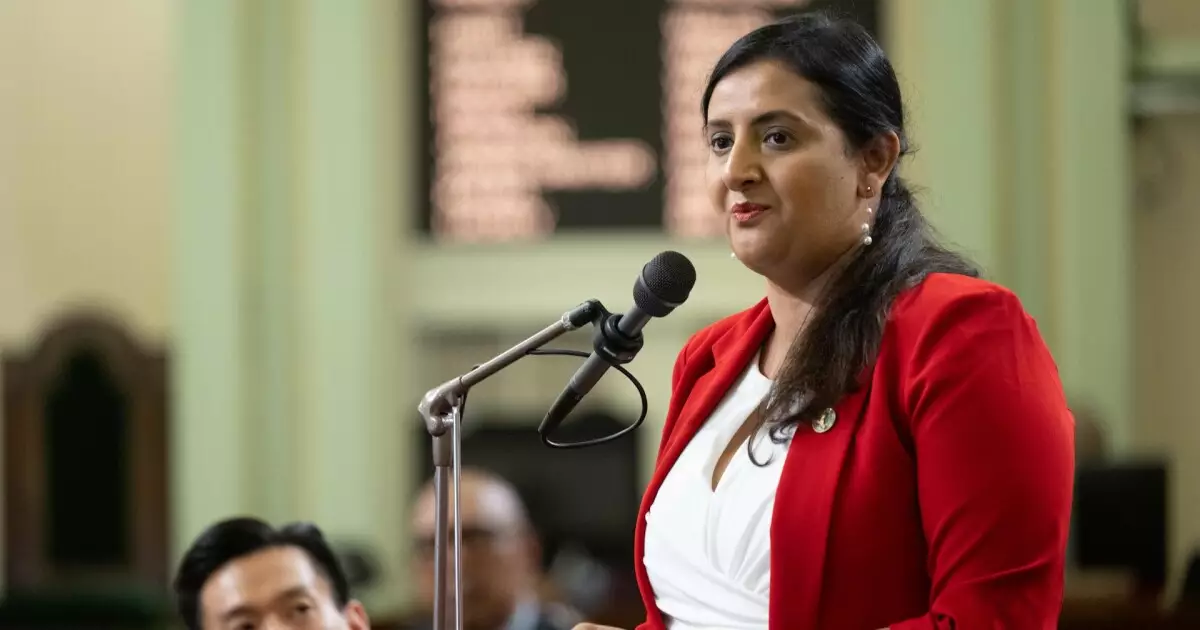California Governor Gavin Newsom’s recent signing of a supplemental budget bill representing a staggering $2.8 billion allocation for Medi-Cal sets off alarm bells for many fiscal conservatives who question the sustainability of such extensive healthcare provisions, particularly for undocumented immigrants. While the intention behind providing healthcare to the most vulnerable segments of society might seem noble, the underlying financial implications raise critical concerns about accountability, transparency, and the burden placed on taxpayers. This development, shrouded in controversy, speaks volumes about California’s ongoing struggle with fiscal responsibility and prudent governance.
A Community Divided
The passage of Assembly Bill 100 reflects a paradox often seen in California politics: the juxtaposition of progressive humanitarianism and fiscal conservatism. The Democrats, who currently hold the majority, rallied around the Medi-Cal expansion for undocumented individuals, openly rejecting Republican arguments that the program’s costs are spiraling out of control. Critics, such as Assemblymember Carl DeMaio, R-San Diego, don’t mince words, labelling the proposal as an unchecked financial burden. “We are effectively giving a gift of public funds to provide insurance for illegal immigrants and their families,” he argued. This sentiment encapsulates the frustration many feel towards the perceived prioritization of non-citizens over the legal residents who are struggling within the healthcare system.
Meanwhile, Democratic supporters fire back, asserting that providing healthcare to undocumented individuals prevents more significant costs down the line. Assemblymember Jasmeet Bains, a physician by trade, argues that when the uninsured seek care, they do so at more advanced and costly stages of illness, thus exacerbating the financial strain on emergency services. The debate encapsulates the struggle between ideology and reality, as well as the complex relationship between healthcare access and long-term fiscal health.
Unravelling the Numbers
Delving deeper into the numbers linked to Medi-Cal reveals a troubling trend: the program, which provides essential services to California’s neediest residents, is grappling with escalating expenditures. The recent appropriations illustrate a fiscal landscape where general fund expenditures have surged to an astonishing $42.1 billion, with total Medi-Cal spending inflating to $188.1 billion over the past six years. While supporters view this as an essential investment in public health, it’s hard to ignore the fact that these figures embody a glaring lack of fiscal discipline and accountability.
The crux of the issue may lie in the expansion of Medi-Cal to cover undocumented immigrants. While the argument for universal healthcare resonates on a humanitarian level, the rationale becomes murky when the costs skyrocket. Newsom’s administration originally projected the expenses to be moderately manageable, estimating around $6.5 billion; however, the current reality is dangerously approaching $9.5 billion, a clear signal that financial forecasting in the state may be erratic or even disingenuous.
The Political Fallout
The decision to support undocumented healthcare has clear political ramifications. As Republican angst grows over the associated expenditures, one must consider how this will affect future elections. Will middle-class voters, who already feel pinched by California’s high cost of living, view this as a necessary measure for social equity, or will they perceive it as a bloated government expenditure that disregards fiscal prudence? The political landscape is set for potential upheaval as fiscal conservatism clashes with progressive ideals.
Meanwhile, Newsom’s administration has taken steps to streamline wildfire safety projects alongside the healthcare expansion, suggesting an attempt to present a comprehensive approach to governance. However, this pivot may inadvertently fuel skepticism regarding the real priorities of state leadership—one where immediate fiscal accountability seems to take a back seat to more superficial gains in public health.
As California continues to grapple with complex challenges—be it wildfire safety, housing crises, or inflationary pressures—the question remains: can the state responsibly manage its priorities without compromising on essential services? This dilemma underscores not only a profound fiscal crisis but also the existential struggle of a state attempting to balance progressive values against the unforgiving realities of its burgeoning budget.

